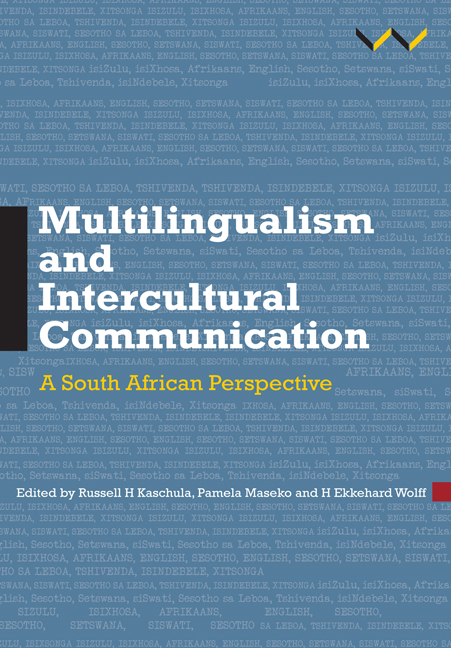Book contents
- Frontmatter
- Contents
- Tables and figures
- Preface
- Abbreviations and acronyms
- Central terms and concepts
- Introduction
- Prologue: The essentialist paradox in intellectual discourse on African languages
- Part One African language empowerment: concept formation and intellectualisation
- Part Two Language planning, terminology development and dictionaries
- 3 Language planning in South Africa: a history
- 4 Language and terminology development in isiXhosa: a history
- 5 Multilingual terminology and cognition in assessment
- 6 IsiXhosa dictionaries, language learning and intercultural communication
- Part Three Language in education
- Part Four Language in the professions: law, media, science and language technology
- Part Five Language, culture and intercultural communication
- Acknowledgements
- Contributors
- Index
6 - IsiXhosa dictionaries, language learning and intercultural communication
from Part Two - Language planning, terminology development and dictionaries
Published online by Cambridge University Press: 23 March 2018
- Frontmatter
- Contents
- Tables and figures
- Preface
- Abbreviations and acronyms
- Central terms and concepts
- Introduction
- Prologue: The essentialist paradox in intellectual discourse on African languages
- Part One African language empowerment: concept formation and intellectualisation
- Part Two Language planning, terminology development and dictionaries
- 3 Language planning in South Africa: a history
- 4 Language and terminology development in isiXhosa: a history
- 5 Multilingual terminology and cognition in assessment
- 6 IsiXhosa dictionaries, language learning and intercultural communication
- Part Three Language in education
- Part Four Language in the professions: law, media, science and language technology
- Part Five Language, culture and intercultural communication
- Acknowledgements
- Contributors
- Index
Summary
This chapter examines the development of isiXhosa lexicography, focusing on how the need to learn this language by people external to the isiXhosa speech community, particularly missionaries, gave impetus to the production of dictionaries in the language. Most isiXhosa dictionaries are, therefore, products of intercultural communication in two ways. Firstly, the need to produce most of the dictionaries, particularly the earliest ones, was due to people outside of the isiXhosa speech community whose adventures required that they interact with local communities. Secondly, the production of the dictionaries themselves relied heavily on intercultural communication between lexicographers, mostly missionaries, who were non-mother-tongue speakers of the language, and members of the local speech community who acted as informants in dictionary- making. The pitfalls of such intercultural encounters are highlighted in isiXhosa dictionaries in the form of misconceptions about the traditional cultural practices of amaXhosa.
Besides cultural misrepresentations in the early dictionaries, the nature of the dictionaries was such that isiXhosa speakers could not use the dictionaries for the purposes of learning their language since English was used as the language of explication. Neither could they use the dictionaries in order to learn English as the dictionaries were not conceived with such a purpose in mind. Although the dictionaries were bilingual, they were unidirectional, with isiXhosa being the only target of language learning. However, the promotion of official multilingualism in post-apartheid South Africa has culminated in the production of monolingual dictionaries in African languages such as isiXhosa and bidirectional bilingual dictionaries that support the learning of English together with African languages, from the foundation phase of basic education to tertiary education.
In view of the context in which isiXhosa dictionaries are produced and used today, this chapter follows McArthur (1986, 1998), who regards dictionaries as containers of knowledge, and other scholars who consider dictionaries as utility tools (Wiegand 1984; Bergenholtz and Tarp 2003; Tarp 2008). Ilson (1985: 1) considers the dictionary to be ‘the most successful and significant book about language’. Therefore, while critical of some existing isiXhosa dictionaries, this chapter is cautious about throwing the baby out with the bathwater.
- Type
- Chapter
- Information
- Multilingualism and Intercultural CommunicationA South African perspective, pp. 112 - 128Publisher: Wits University PressPrint publication year: 2017



